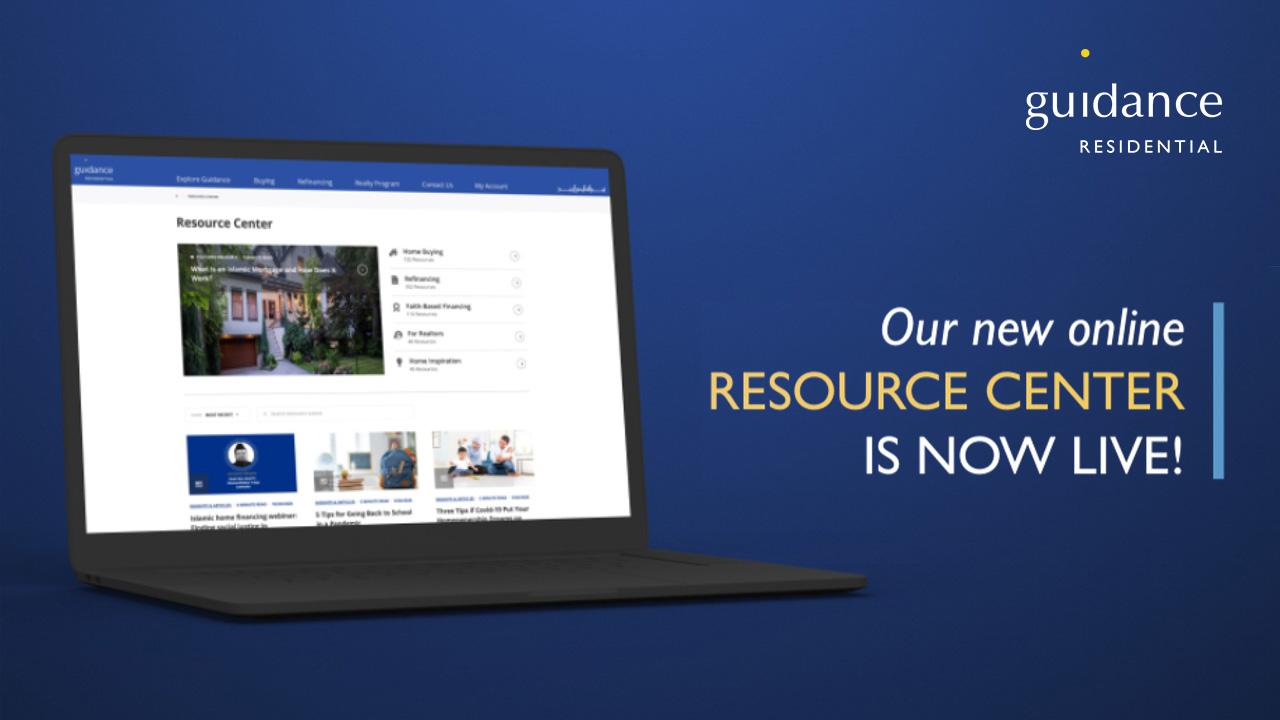Top 8 Considerations for Shariah Compliant Home Financing

Buying a home in the U.S. means not only shopping for an ideal home, but also finding the best financial provider. When looking for a Shariah compliant, usury free alternative to conventional mortgages, the challenge becomes greater as very few customers are aware of the factors that make a home financing contract “Shariah compliant”.
Here are the top 8 considerations in acquiring authentic Shariah compliant home financing:
1. Nature of Financier-Customer Relationship
Conventional mortgages are based on a borrower-lender relationship between the mortgage provider and the home buyer. When the relationship between contracting parties is based on lending, payments over and above the actual cost of the home, are considered “interest.” As a home buyer, your first consideration should be whether the relationship between you and the company assisting you with the financing is a borrower-lender relationship. Truly Shariah compliant home financing will not be based on a loan, or a promissory note.
2. Type of Contract
There are various contracts on the market in use for Shariah compliant home financing. The most common types used by Islamic banking and financial institutions are those based on classical models like Musharakah (or partnership), Murabaha or (cost-plus financing), and Ijara wa iqtina (or lease to purchase). While each of these models is acceptable from a Shariah perspective, they may not be feasible for use in every jurisdiction as different countries have different regulations. With regard to the United States, it is the consensus of globally renowned scholars that home finance based on some form of partnership (Musharakah) is the preferred method as the transaction is riba-free. Partnership also offers financial and other competitive benefits in the financial marketplace. As Murabaha and Ijara contracts may have restrictions and conditions that could render them less advantageous for the home buyer, it is important to determine the type of contract offered to you before making a decision.
3. Shariah Supervision
The structure of a true Shariah compliant contract should be developed with the assistance of experienced and expert Shariah scholars working in conjunction with lawyers, tax experts, and product development teams. After the scholars formally record their approval of the contracts in the form of a fatwa, they will oversee the operations of the company to ensure that the financing offered continues to be based on the authentic contracts. As an informed home buyer, ask whether the home finance provider you are considering is supervised by a qualified board of Shariah scholars. In the United States, only Guidance Residential has a Supervisory Board with world renowned Shariah scholars, each of whom has published important books and research on Shariah finance.
4. Scholarly Endorsements
In addition to formal Shariah supervision, independent scholarly endorsement may provide further credibility and should be considered. Guidance Residential’s Diminishing Co-Ownership Program has been endorsed by national imams and muftis, as well as several organizations including the Assembly of Muslim Jurists of America (AMJA), ISNA, ICNA, al-Qalam Institue, Qurtuba, and the Fiqh Counsel of North America. Guidance Residential has more such endorsements than any other Shariah compliant home finance company in the United States.
5. Independent vs. Bank Owned Entities
There are primarily two types of entities in the U.S. that can legally offer alternative financial services such as Shariah compliant home financing services: independent mortgage financing providers and bank owned entities (BOEs). Bank owned entities are restricted in their capacity to offer various types of alternate options as per the legal and operational structure for products in a banking model. Independent financial services companies have comparatively more opportunity to offer programs such as the Diminishing Co-Ownership Program in which the contract is not based on borrowing and lending, but rather on an equity partnership between financier and client. Guidance Residential is licensed to offer its Diminishing Co-Ownership Program in each of the states in which it operates.
6. Pre-Payment and Late Payment Penalties
As a home buyer, ask the financier if there are penalties for paying off your home early. In a truly Shariah compliant home financing program based on partnership, clients are not charged a pre-payment penalty for paying their home off early. In Guidance Residential’s Diminishing Co-Ownership Program, home buyers and Guidance co-own the property – so as the client makes payments their share of the home ownership increases and Guidance’s share decreases. Making advanced payments only increases your ownership and decreases the remaining term of the contract.
In addition, it is not permissible in Shariah-compliant financing to charge accrual interest on late payments. However, scholars agree that it IS permissible to charge a capped late payment fee to cover no more than the administrative cost of collecting the late payment. Stay informed of what, if any, fees are charged. Guidance Residential charges no more than what it actually costs to collect late payments.
7. Recourse or Non-recourse Contracts
The conventional home mortgage industry involves two types of mortgages: recourse and non-recourse. If the home owner fails to repay the loan in a recourse mortgage, the mortgage provider may be able to legally seize personal assets to collect what is owed. Shariah-compliant financing does not have this option and a client’s personal assets are protected. Guidance Residential’s Diminishing Co-Ownership Program is non recourse.
8. Equal Protection and Shared Risk
The essence of an Islamic financial transaction is shared responsibility or ‘risk sharing’ among the contracting parties. A truly Shariah compliant home financing program should offer equal protection and shared risk to both the financier and the client. The non-recourse commitment made by Guidance Residential, capped late payment fees, and the absence of pre-payment penalties are just a few examples of equal protection and responsibility for both parties.
Call Guidance Residential today and let us help you get Pre-Approved for your new home today! https://www.guidanceresidential.prequalify




